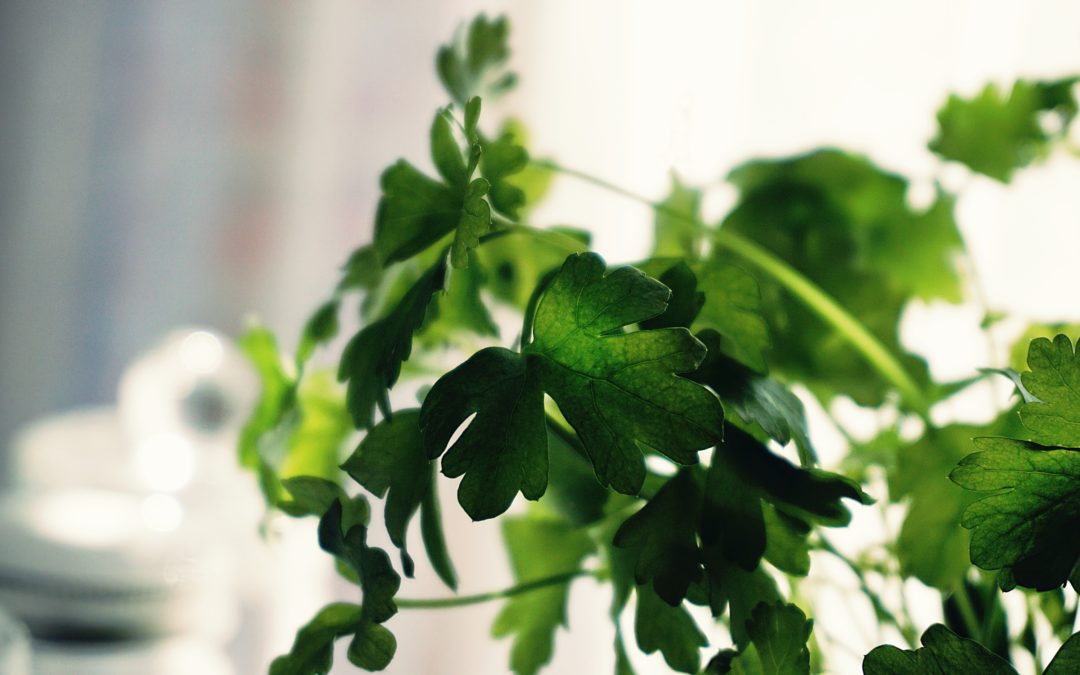How can a simple ingredient help with seasonal allergies? Let’s dive into the topic. Seasonal allergies, like other types of allergies, develop when the body’s immune system overreacts to something in the environment. This usually occurs during spring, summer, or fall when certain plants pollinate. (1) Symptoms of seasonal allergies include watery, itchy eyes, runny nose or congestion, sneezing, postnasal drip, sore, itchy throat and ears. Poor-quality sleep, and fatigue may also result. (2) At the very least these symptoms are bothersome, at the very worst they can make daily-life unbearable. Today, we’re going to talk about one simple ingredient that can help combat seasonal allergies.
Create an environment for self-healing
First, it must be said that laying a well-structured foundation for health is of utmost importance. It comes as no surprise that diet and lifestyle play a huge factor in overall health and well-being. When you follow a high-nutrient diet, you are creating an environment in your body that promotes proper immune function and regulation of the inflammatory response, which may help to blunt allergy symptoms naturally. (3)
But what is considered a nutrient-dense diet? A nutrient-dense diet is one in which a person consumes high-quality whole foods and avoids foods that are processed, chemically altered, or filled with synthetic ingredients. As a result, the body is well-fueled, and the foundation is set for self-healing. One of the foods that fall under the umbrella of a high-nutrient diet is the underestimated, yet powerful, parsley! While often overlooked as a simple garnish on your plate, this little herb is a nutritious powerhouse.
Benefits of parsley
Parsley is an excellent source of vitamin K and vitamin C as well as a good source of vitamin A, folate, and iron. (4) Parsley is incredibly beneficial to your immune system due to its high levels of antioxidants, including vitamin C which helps maintain a healthy gut environment. And most of our immune system is located in the gut! (5) Parsley is also rich in flavonoids, such as quercetin, which prevents immune cells from releasing histamines, the chemicals that cause allergic reactions. (6) In other words, parsley has naturally occurring anti-histamine properties! Researchers believe that quercetin may help reduce symptoms of allergies, including runny nose, watery eyes, hives, and swelling of the face and lips. (7)
With this incredible line-up of vitamins and minerals, I’m sure you’re ready to begin incorporating parsley into your favorite recipes. Fortunately, there are innumerable ways to incorporate this beautiful green herb in any meal. You can eat parsley both cooked and raw, and is easily incorporated into soups, stews, roasts, smoothies, dressings, spreads, marinades, and salads.
Parsley is incredibly easy to grow and will last you for two seasons, as it’s biennial! Consume parsley when bright green and crisp. I prefer organic parsley in the serving size of several teaspoons per day. With allergy season upon us, incorporating this little green powerhouse is a simple way to stay ahead of those annoying, sometimes agonizing, symptoms!
Connect With Me
Stay connected, and receive your 5-Day Immune Support Meal Plan with Recipes, as my gift to you.
Feeling fatigued during the day? Overwhelmed and feeling anxious? Digestive issues, acne, or desiring a more balanced mood? Book your free 15 minute Discovery Session and learn how Functional Nutrition can support your health.
xo Neeley at Your Epic Genetics
This information is being provided to you for educational and informational purposes only. It is being provided to you to educate you about healthy eating and living and as a self-help tool for your own use. It is not medical or psychological advice. This information is to be used at your own risk based on your own judgment.
For my full Disclaimer, please go to https://yourepicgenetics.com/index.php/disclaimer/
- “Seasonal Allergies.”ACAAI Public Website, 29 Oct. 2018, acaai.org/allergies/seasonal-allergies.
- “Does Diet Influence Seasonal Allergies?” DrFuhrman.com, www.drfuhrman.com/elearning/eat-to-live-blog/131/does-diet-influence-seasonal-allergies.
- Ibid.
- Parsley, www.whfoods.com/genpage.php?tname=foodspice&dbid=100.
- Levy, Jillian. “The Antioxidant-Rich Herb That Supports Immune, Digestive & Bone Health.” Dr. Axe, 6 Mar. 2020, draxe.com/nutrition/parsley-benefits/
- “Quercetin.” Mount Sinai Health System, www.mountsinai.org/health-library/supplement/quercetin.
- Ibid.


Recent Comments